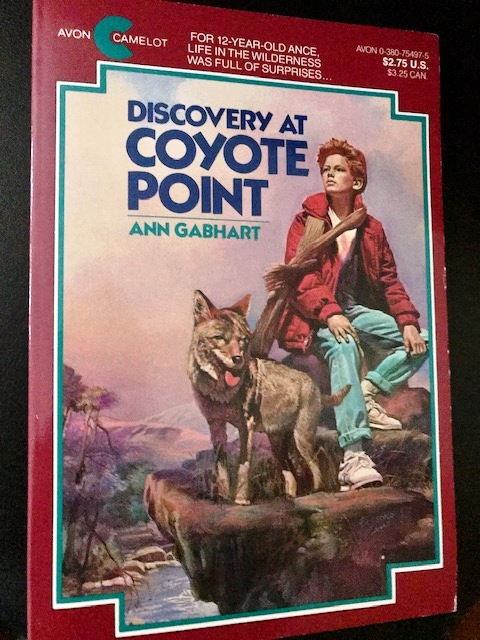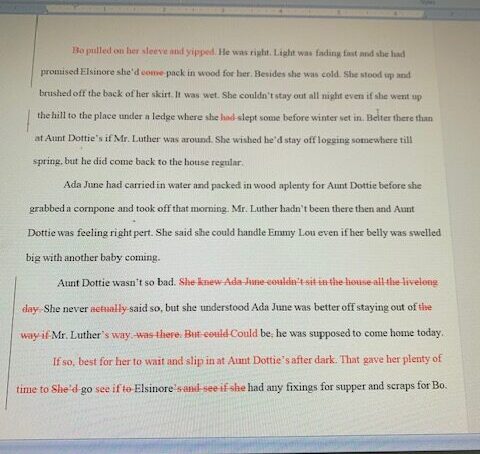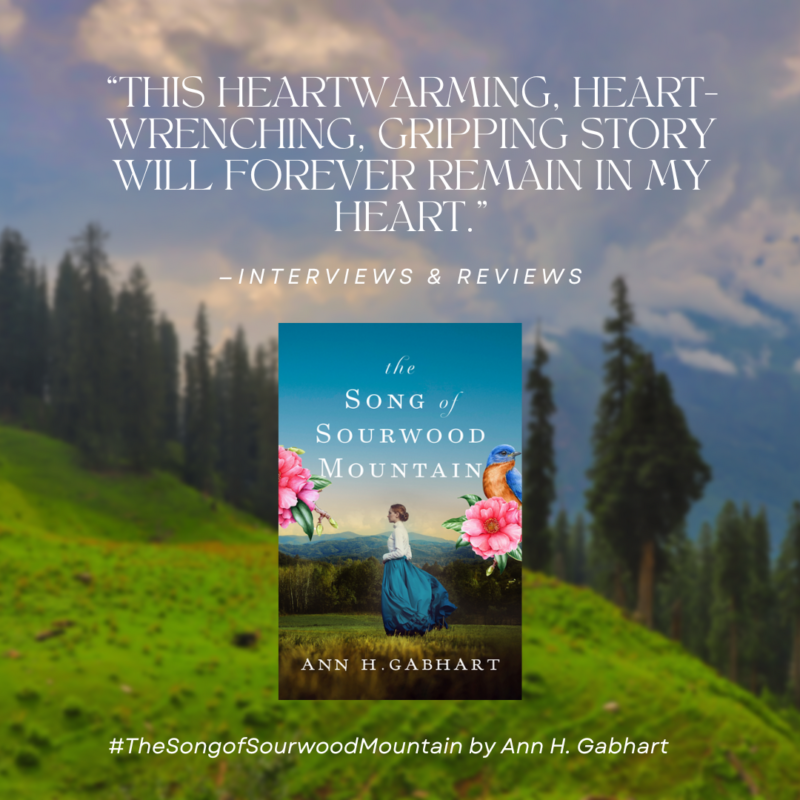I’m on to the next step for my work in progress. That’s how it can be for a writer. While one book has just come out for readers. a writer is often putting the finishing touches on a new story. That’s how it was for me with The Song of Sourwood Mountain releasing three weeks ago on May 7th while I was writing the last scenes in my next story.
Some of you have already read The Song of Sourwood Mountain. If so, thank you. One person told me she read the story in two days. That’s fun to know, but the book took me months to write. Then more months went by while the story was undergoing edits, finding the perfect title, and getting wrapped in that beautiful cover.
My books go through several editing phases. First is my own first edits. When I’m writing a book, I generally work in chapters. Some writers work in scenes, but I like chapters. Once I finish a chapter, I reread it and do immediate edits. Sometimes if a deadline isn’t breathing down my neck, I will stop at around 100 typed pages to reread and do some small edits to see if the story is progressing the way I hoped. After that, I usually just do those right now edits whenever I get to the end of a chapter. Once I find those magic words the end, then I go back to the beginning and read through the book. On this read through I only do minor editing but I note where more editing will be needed.
I breathe a sigh of relief if I think the story is better than I thought it was while I was writing it. I nearly always think the story is going to be awful at some time while I’m writing. But once I do that first read through and begin to believe the story has hope and might actually be one some readers will want to read, I go back to the beginning and work through it chapter by chapter. I edit one chapter at a time. I edit through the chapter once and then go back to the beginning of the chapter and work through it again. I always find things on that second run through that I missed.
Once I get to that last chapter and the end, I like to go back to the beginning and make another read through, sometimes reading the story aloud. I don’t always have time to do that if I need to meet a deadline, or as has happened the last couple of times, an extended deadline. I’m thankful for understanding editors who can sometimes give a writer a couple of extra weeks to try to polish a manuscript.
 The polishing is different now than it was when I was writing my stories on a typewriter and not a word processor. The sheet up top is edits I did on my first draft of my middle readers book, Discovery at Coyote Point, back in 1988. I did a lot of marking out and handwriting in edits and improvements. That page has many edits. I keep it to show kids when I do school talks to help them see that a first draft sometimes needs some tweaks, or a lot of tweaks. That was edits then.
The polishing is different now than it was when I was writing my stories on a typewriter and not a word processor. The sheet up top is edits I did on my first draft of my middle readers book, Discovery at Coyote Point, back in 1988. I did a lot of marking out and handwriting in edits and improvements. That page has many edits. I keep it to show kids when I do school talks to help them see that a first draft sometimes needs some tweaks, or a lot of tweaks. That was edits then.
Then somewhere along the way, I got a computer with a keyboard and a word processor. Editing changed. Sometimes became a little scary. Before when I crossed something out and penciled in a new line, I could still see the old line. I could go back. But now I was editing bravely by deleting and typing in the new words. I have been saved many times by Control Z, that can put back what I just deleted. Sometimes I kept an original draft copy and a copy I was editing.
Once I send my digital manuscript off to the editor, the first rounds of editing suggested by the publishers begin. At that point, I use the track edits setting so that every word crossed out is there and whatever words I add are in a different color so the editor can see what I’ve changed. The following is an edited bit of a scene featuring Ada June and Bo from The Song of Sourwood Mountain.
After this round of edits, the story goes through more editing from another editor who points out miscues I missed and all sorts of ways to improve the reading ease of the story. Run on sentences are chopped apart. Words used too many times are cut or changed. The same word used in the same paragraph more than once is edited to make the writing fresher. Many of these changes are suggested in the margins in editing comments.
Finally proofreaders at the publishers read the story to catch things the other editors and I have missed. I get one more chance to read through the story and make sure there aren’t any typos or other mistakes. At last, after all that, you readers get to be the next to read through to see if we were careful with the edits and didn’t get too much wrong.
The truth is, none of us are perfect. Even after all those read throughs and edits, errors can slip past us, writers and publishers. While that happens, you can trust that we try to make the story as easy to read as we can.
What kind of slip ups in books have you noticed? Did it bother you or affect how you felt about the story?
I heard from all my newsletter winners. Beth from Maryland chose River to Redemption for her book prize. Andrea from Wyoming chose Along a Storied Trail, and Twila from Misouri chose Scent of Lilacs. The books are in the envelopes just waiting for me to head to the Post Office.
Get your thinking caps on. I hope to start a new Mystery Picture game next Wednesday. I think I have found at least one mystery photo.
As always, thanks for reading.




Comments 7
I find grammatical errors in just about every book I read. It’s usually misuse of the past tense of sit/set or lie/lay. It also bugs me when I see “alright” instead of “all right.” Evidently, alright has become acceptable but I still don’t like to see it. I’m looking forward to your mystery photo game. I love that game. You always come up with good ones.
Author
I’m hoping to find some mysteries to share by Wednesday, Lee. I sometimes feel as though I’ve used them all up. LOL.
I hate when I see grammar mistakes in books – especially when the books are the ones I’ve written! But I can’t say it’s never happened.
I have seen some errors when reading a book that I just ignore, unless I keep finding a lot of them in the same book. That does annoy me. It seems when that happens that it was not edited well. I will buy some books from a few of my favorite authors, including you, without even checking out the book, but if I am not sure I will read the reviews, starting with the least stars and working up. I really don’t like it when reviewers give one or two stars without giving a reason. I have decided not to purchase many books due to reviewers saying that there are a lot of errors. I am on lot of review teams (over 15 doing a quick count, plus have done some for just one book)and like it when an author is willing to receive emails from her team members pointing out things they see or question, if something doesn’t seem to make sense. I sometimes think that some authors do not take the time and consideration that a really good author takes before finalizing a book. Thank you, Ann, for your excellent books.
Author
Wow! Fifteen review teams. You are a blessing to many writers then, Ann. Thank you for reading my stories and writing reviews. Unfortunately, my books are usually printed already or going to the printers when readers get the books, even if they are advanced reader copies. I cringe sometimes thinking of my stories going out at ARC copies and thinking that there are going to be things I will improve from that early copy.
I’m like you that I just pass over minor mistakes, but I wouldn’t like it if there were a whole slew of them. I think some ebooks may have more errors than print books.
I get amused by small grammar or spelling errors . I feel like those are the things to find in a scavenger hunt. That’s when I wonder just how do people get a job like editing , because I think I’d like that for as much as I read. I do get a little disconcerted when editors haven’t found slip ups that confuse the characters in the story. Those make me go back and re-read to make sure I really understood what was going on.
Me, too!! Those character slipups are not only confusing, to me they are annoying, too.
Author
That’s certainly understandable, Cindy Sue and Ann. We read stories to get to know the characters and we don’t like it when that’s hard to do. Getting names mixed up or not staying in voice with the characters can be a turn-off for me. I guess what really has me putting a book down is when I can’t like the main characters in the story. I want to read about somebody I can cheer for.